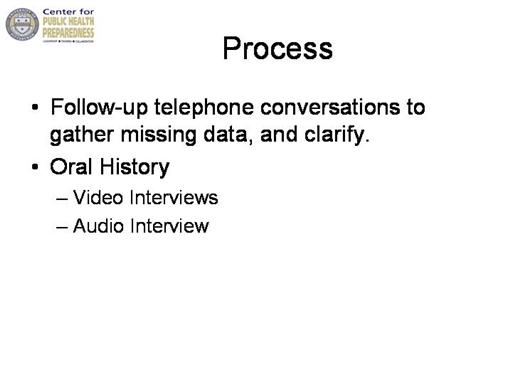| front |1 |2 |3 |4 |5 |6 |7 |8 |9 |10 |11 |12 |13 |14 |15 |16 |17 |18 |19 |20 |review |
 |
Oral History is the process of letting
participants tell their story of what happened.
We wanted to talk to some of the
participants to clarify some discrepancies which we found in our
existing data.
For example, the husband of a nurse at the
hospital where the cases were first found played a role in the case, but
accounts were conflicting and unclear.
There were also questions about secondary
infections.
I created a framework which gave the
participants the opportunity to tell their own story, while also
focusing on some information we wanted to know
The oral historian interjects himself into
the process as little as possible, except to encourage the interviewee
to talk and share information.
This is a little different than usual in
oral history. Often, you are
talking about personal matters, or you are pursuing subjects which may
not be clear to the interviewee, or you are trying to get them to talk
about things they may not want to talk about.
Itís unethical to fool your interviewee.
In this case, the discussion is more about facts and professional
process. You subject knows the
purpose of you inquiry, and is not about personal matters.
However, if mistakes were made, especially personal errors, the
person may be hesitant to make themselves look bad, or reveal something
that would be professionally embarrassing.
You need to balance your inquiry with judgment, and not trick
your subject into revealing information.
Oral history is an open process.
I will talk more about oral history further
into the presentation.
|